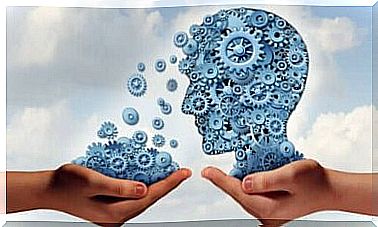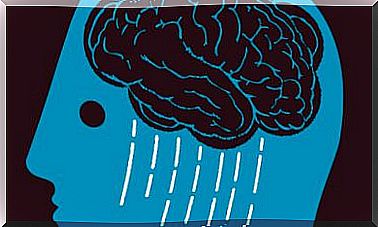How Do You Become A Good Negotiator?

In some ways, we are particularly prepared for the art of being a good negotiator. Most children are already ruthless negotiators. They know their cards. They know that they have the ability to comply with the wishes of others (for example, behaving well). Therefore, they do not hesitate to play those cards in exchange for what they want.
To be a good negotiator, you need a number of skills. You also need to manage these properly. Among these, confidence, assertiveness, flexibility, or good character are especially helpful. But there are many more. And the good news is you can train yourself to have them!
Learn and experience to be a good negotiator
A negotiator’s main management tools are essentially two: courage and integrity. These two skills allow us to defend our beliefs for our interests and values, and at the same time, we can be eloquent and smart. For this reason, if you are going to negotiate something, it is a good idea to know that there are certain strategies that can help you, especially if you choose the right time to use them.
As we said, even as kids we had potential. For example, when we asked our parents to read us a different story or get a few more minutes of back massage before bedtime. Our parents are our first rivals, because without us knowing it, we are already negotiating.

How our brains work during the process
When faced with a negotiation, it is normal for us to activate our prefrontal cortex and experience some nervousness at the beginning. If we then believe that we cannot handle the situation, our amygdala causes us to experience fear.
To overcome any panic, it is best to anticipate, plan and prepare for the situation in advance. For example, we should have a clear idea of what our goal is, how to proceed and collect as much information as possible. It is also good to know some tricks, such as opening a negotiation on amounts using the ‘reference effect’.
Next, our brain activity is concentrated in our mirror neurons. These help us to empathize with the person in front of us. This creates a climate of understanding and trust. We look for cues for how the person we are talking to is feeling or will act. We adapt to their mood and act accordingly. At this point, communication skills are essential.
The importance of what is not said
At some point in the negotiations, we may reach or approach a point where there is no turning back. But before we throw in the towel , it’s a good idea to use all the tools at our disposal, both verbal and non-verbal. Gestures are just as crucial as words. For example, if we notice that they frown at one of our proposals, change their position often, don’t keep eye contact, or stick too much to their point of view, it’s better to change the way we proceed.
There are two important moments when we need to pay extra attention: greetings and goodbyes. The best handshake is a vertical up-and-down motion, without palm twisting or exaggerated movements. To make agreements, you can use your left hand to lightly touch the other person’s arm, as this transmits intimacy.
The brain doesn’t want a draw, it wants to win
If, after completing the process, it benefits both parties, the brain may not feel satisfied. In these cases, our mind does not think about win-win situations, but only about two options: win or lose. Success is not measured in terms of profit, but in the degree of conscious satisfaction.
There are other types of negotiations in which we seek mutual agreement. In this sense, the two negotiators know that if one of the two parties is not satisfied, it will not be long before the agreement is broken. So if we are one of these parties and capable negotiators, we will not only try to represent or protect our interests, but we will also try to ensure that the other side sees the outcome as positive.
On the other hand, if we judge the outcome of the negotiation as positive, our reward circuit is set in motion. When activated, our bodies release neurotransmitters responsible for pleasure, such as dopamine and oxytocin. But when we believe we are unsuccessful, neurotransmitters such as adrenaline associated with a threat are released. That is why we feel angry, disappointed or depressed.

The role of emotions
Many specialists point out that it is necessary for a good negotiator to put emotions aside and opt for objectivity. This is the foundation of game theory. It advocates a cold and sterile process, in which all involved are perfectly rational.
But this is something very difficult to achieve if we take into account the fact that we are human beings and therefore emotions are part of us. Feelings almost always influence a negotiation. That’s why it’s a good idea to know how to dominate them so they don’t mislead us.
Proper management of emotional intelligence and the ability to criticize oneself are essential to being a good negotiator. Thanks to them, we will be able to understand a defeat, analyze its reason, learn from it and better cope with a future negotiation.
Simple Strategies to Be a Good Negotiator
Here’s a summary of the skills a good negotiator must have for their negotiation to be an art form.
- Listen actively: not just hearing, but paying full and complete attention to the other person.
- Assertiveness: express your point of view while respecting the rights and beliefs of others.
- Self-confidence: be brave and sincere. If you are not sure, your position will be defensive.
- Balance: give and expect something in return. It’s a negotiation, not a charity.
- Optimism: Your willingness to negotiate, listen to proposals and accept changes will get you good results.
- Empathy: Patience and sensitivity help temper your mood if you feel cornered at any point.
To be a good negotiator, it’s important to know how to use your brain and follow the advice of neuroscience. We have all kinds of personalities there. However, the key to success is knowing how to find the right dose of emotion and reason.









